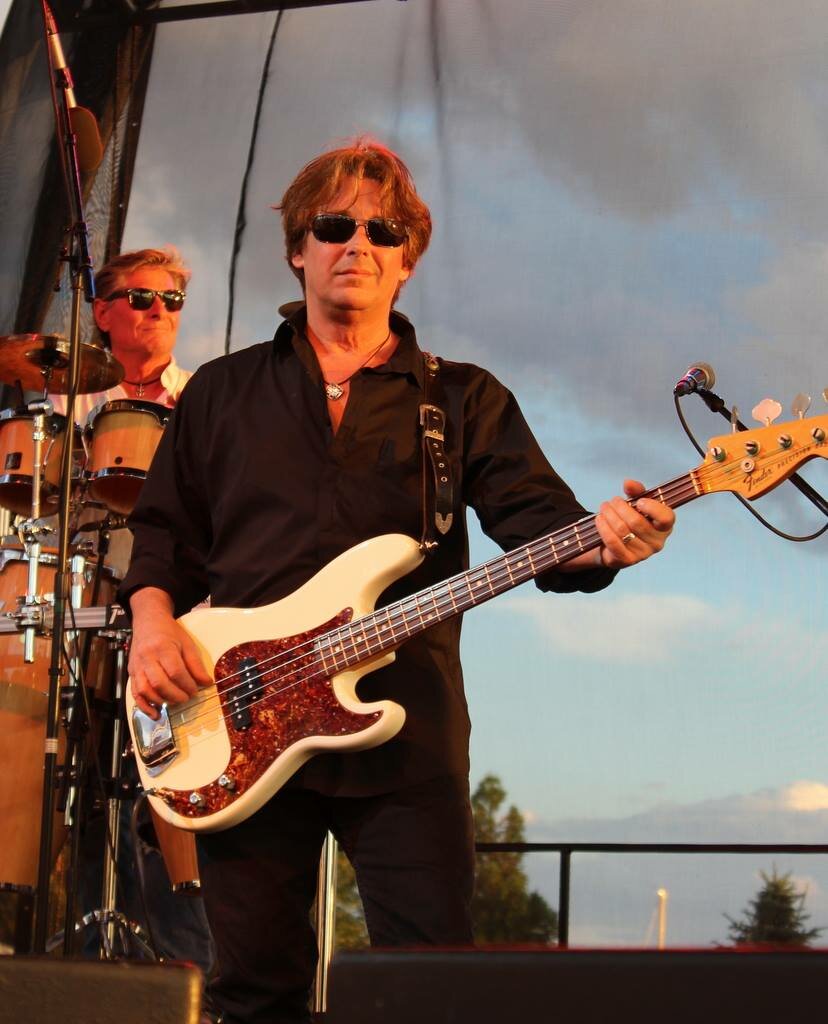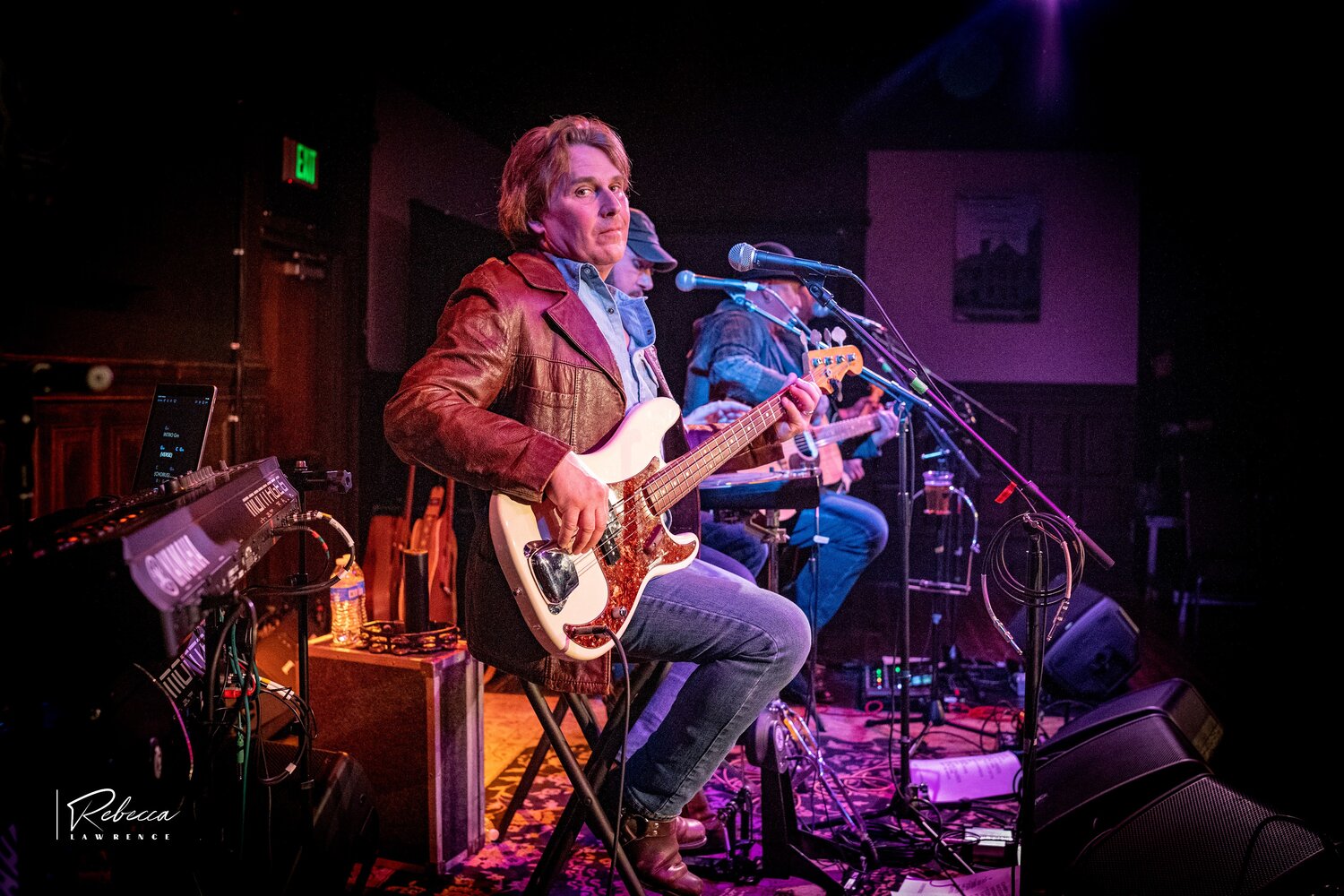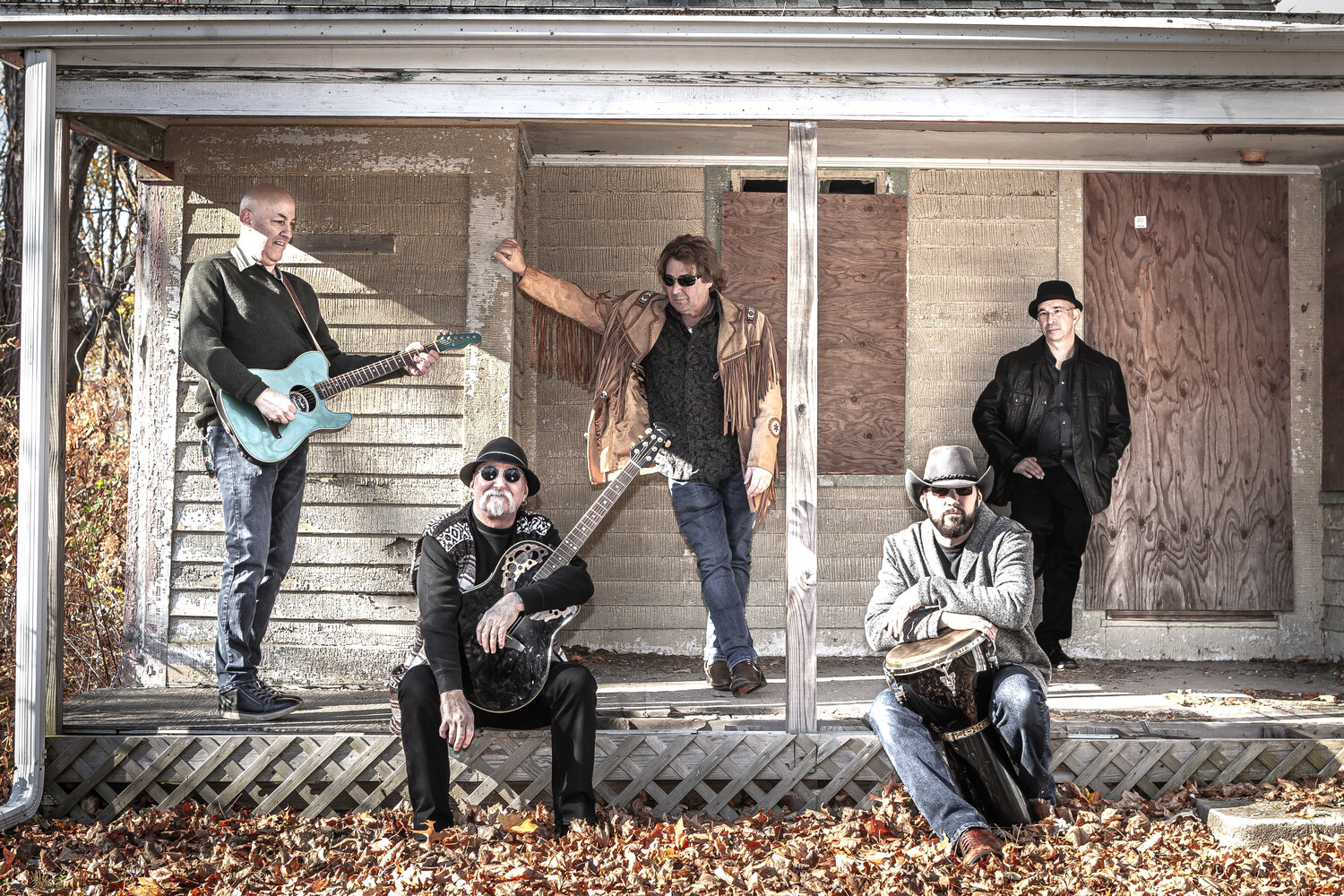- SATURDAY, APRIL 27, 2024
Meet Eric Leffingwell: The bass guitarist who keeps it simple
On a beautiful summer evening, over a pint outdoors at Aidan’s Pub, I sat with bass player, guitarist, singer/songwriter Eric Leffingwell, where he spoke of his musical development, the …
This item is available in full to subscribers.
Please log in to continue |
Register to post eventsIf you'd like to post an event to our calendar, you can create a free account by clicking here. Note that free accounts do not have access to our subscriber-only content. |
Day pass subscribers
Are you a day pass subscriber who needs to log in? Click here to continue.
Meet Eric Leffingwell: The bass guitarist who keeps it simple

On a beautiful summer evening, over a pint outdoors at Aidan’s Pub, I sat with bass player, guitarist, singer/songwriter Eric Leffingwell, where he spoke of his musical development, the importance of simplicity and the Bristol “Brotherhood“ that has been a large part of his life’s journey.
In the pursuit of quiet, we ventured up to the top deck where, except for a visit from a fickle New England August wind swirling about us, we were alone. All other patrons opted for the downstairs dining area and bar, surely due to the forecasted 50 percent chance of rain (which eventually happened, forcing us inside). Here, Leffingwell was in his element. As we entered and exited the pub, more than one fan greeted him with a “Hey Eric“ or a “Are you playing here tonight?“
The lifelong Bristol resident was genuine, humble and lighthearted, yet expressly serious about what it means to be a musician.
“My sisters and brother had a record collection. The Beatles, Steppenwolf, The Hollies, all the ’60s invasion bands as well. That’s how I was exposed to music,“ said Leffingwell. “I remember some of the first albums that I bought for myself were The Partridge Family and The Monkees. I loved all that music, and I just attached to it very quickly.”
“ I started playing music at the age of about 12 or 13,“ said Leffingwell. “I got a guitar, like everyone else did, and took some lessons from Alfred’s across the street from the Wood Street Cafe … After that, when I got a few years older, about 16 or 17, I started working with a local band called ‘The Pull’.”
But Leffingwell wasn’t a musician in the band. He performed a different yet no less important function.
“I was a roadie for the band. I was working with and hanging out with the guys. The guitar player was David Matos, who is now a successful Broadway musician and tours with many companies,” said Leffingwell. “He pretty much taught me the basics of the guitar and helped prepare me for my path and towards my next step.”
A high school roadie
Typically, musicians spend their formative years playing in bands to learn the ropes, and Leffingwell had many contemporaries who did just that, ’bashing it out in a garage’, but he chose a different path. As a roadie he was discovering songs, getting tutored and learning about the nuts and bolts of a working band environment.
“These guys were a few years older than me and more worldly and adventurous. I would travel with them all over New England to gigs, vernighters on the weekends,“ said Leffingwell. “I was 17 and in high school. I’m still a roadie, but I’m practicing my guitar. Eventually I started to play parties in a duo with guitarist David Matos. I got more experience, and I grew as a musician and a participant in the music business.“
“I was hanging out and working with seasoned musicians. These guys were already in Berkley. They were in their early twenties. I always gravitated to an older crowd. My siblings are eight years plus older than me. I hung with them and hung out with my grandparents as well,” remembered Leffingwell. “Not that I didn’t hang out with people my own age, which I did, but that’s just how things happened. There’s really no explanation for it.”
While clearly comfortable in the company of elders, I asked if he ever felt like the little kid. And if so, was he treated accordingly or as an equal?
“I was ALWAYS the little kid. I’m still the little kid,” laughed Leffingwell. “Even in my band now I’m the little kid, but I can say I was always a peer and always treated with respect.”
A Berklee student
Upon graduating high school Leffingwell left the band with his eye to the future. He applied and got accepted to Berklee school of music in Boston, where he studied musical production, engineering and recording.
“I was at Berklee with my friends from Bristol ,Tony Carlone, a great guy and drummer, and Chris Roy. Tony and I were roommates. Having friends there made the transition easier. I was a guitar player, and my schoolmate Drew was putting together a band, but he needed a bass player so I switched to bass then and there, and I’ve been playing bass for the last 35 years!” exclaimed Leffingwell. “I still play my guitar (six string) all the time, but the bass guitar was then and is now my bread and butter.”
In the 1980s, Boston hosted a vibrant rock music scene. There was a club on every corner and a band playing every night. Most musicians knew each other, and for the big city that it was, it had the small town feel of a musical family. As Leffingwell put it, “It was a very cool, tight knit scene and I felt blessed to be a part of it.”
The Boston music scene
“Around 1986 I was playing bass with a band called ‘Pieces’. It was a power trio with three-part harmonies and all original songs, which we wrote together. We made quite a name for ourselves in Boston from 1986 to ’91,” said Leffingwell. “One year ee were nominated for best hard rock band in Boston by the Boston Music Awards, but we lost to the band Extreme. Our manager at the time was the booking agent for the Channel in Boston, so we were plugged right in to opening for the major acts. We opened for many national acts, including Joan Jett and Skid Row. We were close to a recording deal, but the record company chose to sign the Goo Goo Dolls instead. It was a blessing that we weren’t chosen, because the deal they eventually signed was a terrible one — one that they tried to get out of for years after.”
With the advent of Grunge music rearing its flannel shirt, things were changing. Business was slowing down, and hard rock clubs were closing, as the Seattle sound became the musical flavor of the month. Leffingwell’s band broke up as musicians started to gravitate to New York City, where the offspring of hard rock – New Wave and Punk – were taking root.
On to New York
“I moved to New York City just to see what was around the corner. New York City is a great place to visit, but if you don’t have a lot of money you struggle living there. I like to work hard and I’m diligent, but I don’t like to struggle, so I moved to Connecticut,” said Leffingwell. “I went from New York City to living on a lake in a lake house. I did some work for Ed Roman of Roman guitars and there in Connecticut I met a great bunch of musicians. I started a band called Big Top Low. We played originals and recorded a few CD’s. We would go into the city to play at the big clubs like CB GB’s and The Continental.”
Coming back home
After ten years of living and playing in Connecticut, as well as in New York City, Leffingwell felt it was time to reevaluate and regroup. He moved back home to Bristol and went to graphic design school. Upon graduation he landed a job at the local newspaper company (the group which produces this newspaper). He worked there for about a year but was still involved in music.
“I reconnected with my friend, drummer Tony in Bristol in the early 2000s, and we were in a couple bands together. I became recognized as a good, dependable bass player and the phone started ringing,” said Leffingwell. “I play in the pocket. That’s my job. I keep it simple, just like in life. Why complicate things?”
“I was playing in lots of bands, Fat Daddy, Big in Europe, to name a couple, when one day I got a call from Band of Brothers. They needed a bass player and one who was able to learn 40 tunes in a week. Within a week I was on board playing gigs. We played the Pierce Field Fourth of July Festival, the Warren festival and Gillary’s” At one point I was playing with Band of Brothers, Rendition and Rune, with Colby James, all at the same time. This became the beginning of a positive trajectory for me.”
Trinity
Joe Caron, one of Bristol’s premiere guitar players and original member of Band of Brothers, left that band in 2009 to form ‘Trinity’, which would go on become a New England musical sensation that pays homage to the music of Crosby Stills Nash and Young.
“The whole CSNY thing started in Band of Brothers when Joe was still in the band. Joe left and formed Trinity, doing all the oldies stuff. They asked me to play bass and now they started working on all the CSNY songs. Joe was influential in making the CSNY Trinity idea a reality. Things began to take off for Trinity, and now, for me, the other bands are done. Being in three bands was just too much for me. I’m doing Trinity full time.”
“This year with Trinity has been amazing. It’s not just a band anymore, it’s now a CSNY experience. Every show we now play has been a sellout. We play The Narrows, The Center for the Arts in South Kingston, The Rex theater in Manchester, New Hampshire. Worcester, Taunton, all over. I’ve always been a band guy. Lots of people are solo people, solo people with musicians behind them. I’ve always been about the band. There’s a brotherhood of musicians in Bristol. The camaraderie and the banter. It’s a family.”
I wondered if Leffingwell has found his musical nitch with Trinity?
“Yes, I think I have, but I have an interest in doing my own stuff. Let me back up a little. When covid hit, it stopped everything and gave me time to put down my bass. Not playing any gigs, I bought myself a nice Mac, bought some recording gear and picked up the guitar again,” said Leffingwell. “Now I’m writing songs, doing demos, and I will be going into the studio to sing and play an original album. Covid, as terrible as it was for everyone, gave me a chance to step back. I was extremely busy, always working. It allowed me the time to let my thoughts go and play my guitar and I saw other people doing that too, just stepping back, refocusing, rebranding, reinventing. Like being reborn. In such a terrible time it was a strangely, healthy experience in some ways. People made the best of a dire situation.”
What or who inspires Leffingwell these days?
“Well, of course, first and foremost my wife and my two daughters. Having said that, small things inspire me as well. Getting up in the morning and making my bed is a great way to get things started. Now I’ve already accomplished something positive. The rest of the day is a cakewalk because now I’m on a productive path.”
I wondered if Leffingwell had any words of advice for musicians, be them novices or veterans?
“Don’t listen to others, be true to yourself. If someone tells you to sing or play it the way they want, it’s not going to work,” affirms Leffingwell. “You have to play what comes from your heart, not what comes from someone else’s head. And if people like it, that’s fine. If not, it’s on them.”
For more go to Facebook: Trinity The Ultimate CSNY Experience.
Michael Khouri is a Barrington resident writing occasionally about the Rhode Island music scene. Reach him at mkhouri@cox.net.
Other items that may interest you











